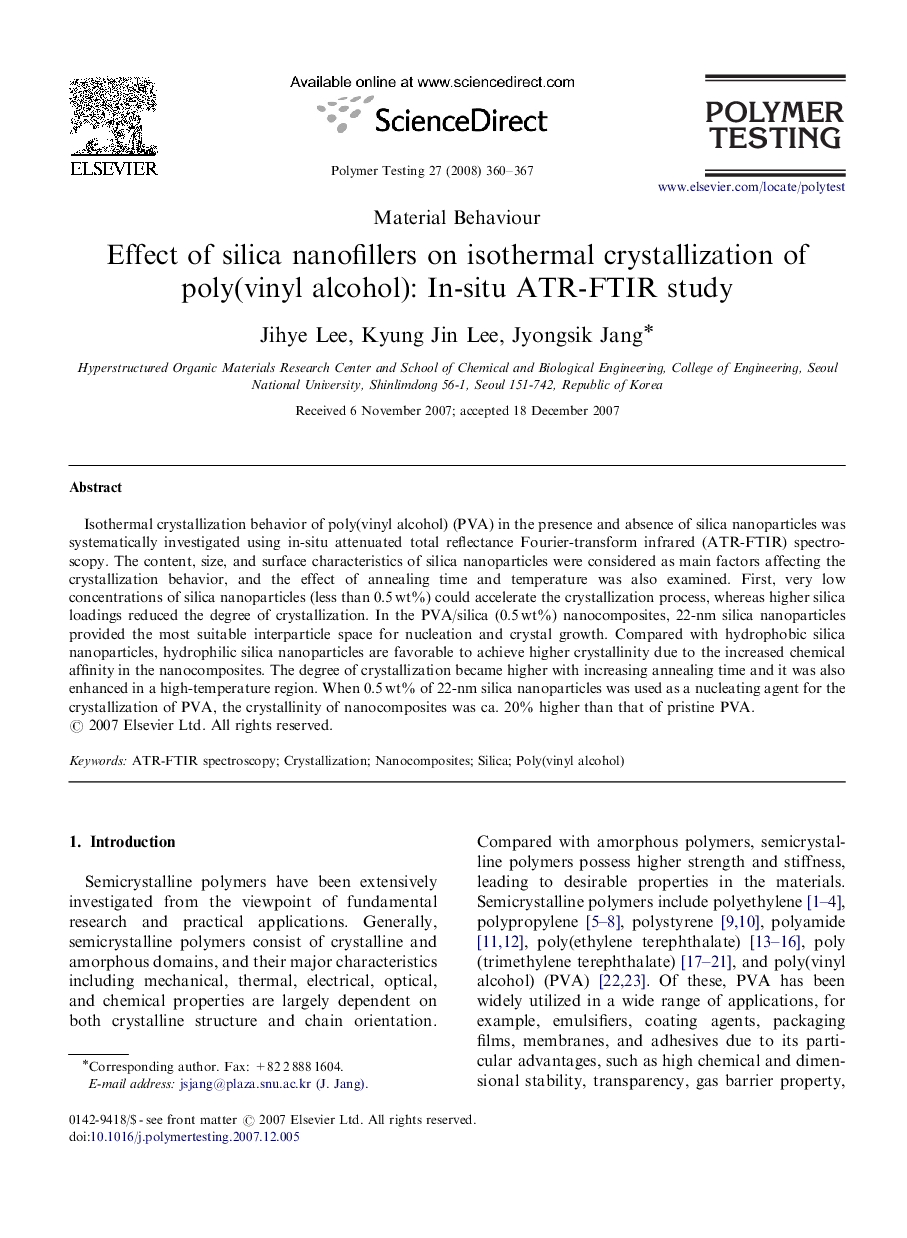| Article ID | Journal | Published Year | Pages | File Type |
|---|---|---|---|---|
| 5207695 | Polymer Testing | 2008 | 8 Pages |
Abstract
Isothermal crystallization behavior of poly(vinyl alcohol) (PVA) in the presence and absence of silica nanoparticles was systematically investigated using in-situ attenuated total reflectance Fourier-transform infrared (ATR-FTIR) spectroscopy. The content, size, and surface characteristics of silica nanoparticles were considered as main factors affecting the crystallization behavior, and the effect of annealing time and temperature was also examined. First, very low concentrations of silica nanoparticles (less than 0.5Â wt%) could accelerate the crystallization process, whereas higher silica loadings reduced the degree of crystallization. In the PVA/silica (0.5Â wt%) nanocomposites, 22-nm silica nanoparticles provided the most suitable interparticle space for nucleation and crystal growth. Compared with hydrophobic silica nanoparticles, hydrophilic silica nanoparticles are favorable to achieve higher crystallinity due to the increased chemical affinity in the nanocomposites. The degree of crystallization became higher with increasing annealing time and it was also enhanced in a high-temperature region. When 0.5Â wt% of 22-nm silica nanoparticles was used as a nucleating agent for the crystallization of PVA, the crystallinity of nanocomposites was ca. 20% higher than that of pristine PVA.
Related Topics
Physical Sciences and Engineering
Chemistry
Organic Chemistry
Authors
Jihye Lee, Kyung Jin Lee, Jyongsik Jang,
